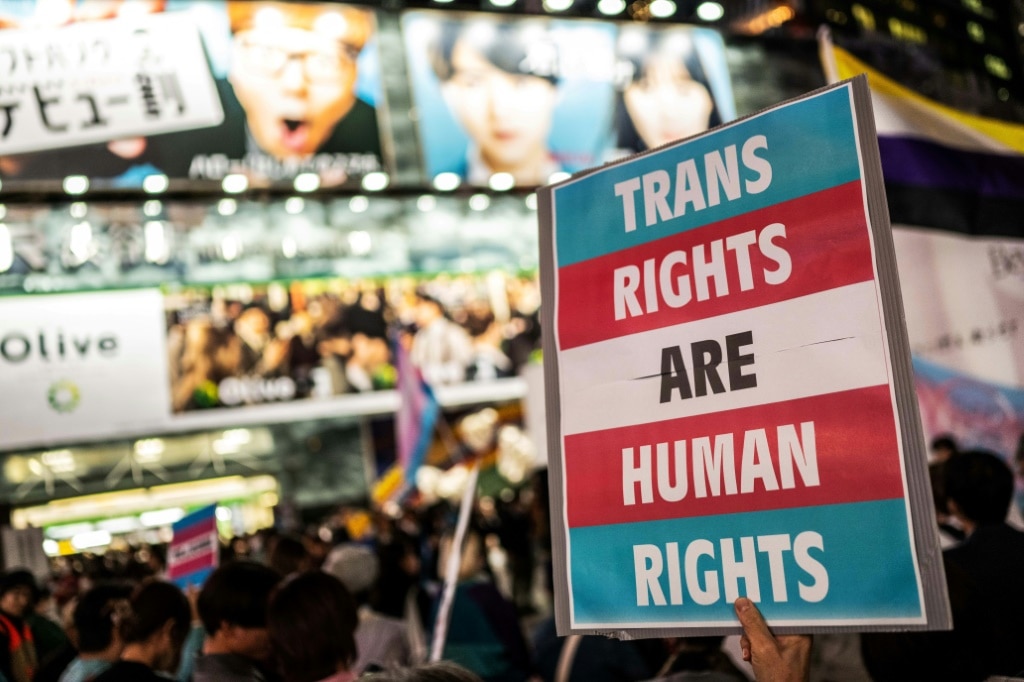Family Court judge rules father’s gender non-conformity ‘confused’ his children
A Family Court judge has determined a father’s refusal to conform with traditional gender norms encouraged his three children to ‘question their gender identity’.

A Family Court judge has determined that a father’s refusal to conform with traditional gender norms left his three children “confused” and encouraged them to “question their gender identity” after they all began identifying as non-binary, ruling the two youngest children will not be permitted to see their father for an extended period.
The matter regarded the breakdown of a 20-year relationship between a mother and a father, who identifies as male but occasionally wears gender non-conforming clothes, including a dress to his middle child’s first day of school.
Justice Kylie Beckhouse earlier this month ruled the two youngest children, known pseudonymously as Riley, 8, and Taylor, 13, will not be allowed to see their father for the next four months, after which period they will spend time with him on Sundays.
The eldest child, Jamie, 16, who is taking puberty blockers and wishes to undergo a mastectomy once he completes his HSC, will live with both parents in accordance with his wishes.
In making the orders, Justice Beckhouse said the father’s “right to self-expression is not a reflection or criticism of his parenting capacity”.
“However,” she continued, “it is possible that raising the children without adopting societal gender norms and expectations has led them to be confused and question their gender identity.”
“There is nothing obviously detrimental about a parent allowing their child to reject the prevailing societal gender norms and expectations. But arguably, it has the potential to make them more vulnerable when they are, at the same time, questioning their sense of belonging following a difficult parental separation.”
The case comes as the Family Court continues to grapple with the complexities of gender identity, especially in the context of children, medication and surgery.
Last month, the mother of a 13-year-old with gender dysphoria abruptly withdrew an application seeking a Family Court order to allow the child to take puberty blockers, after trying to have the independent children’s lawyer assigned to the matter thrown off the case.
In May, Family Court judges were presented with a legal paper from a top barrister arguing the court must reassess how scientific advancements should apply to the family law system.
The latest matter centres around two parents who met in 1999 and began living together in 2003. In 2009 the father was diagnosed with anxiety and depression, conditions that “intensified” until he became suicidal in 2018.
In 2019 he was diagnosed with ADHD and was prescribed medication to treat the symptoms. That same year, the couple physically separated and the father moved out of the former matrimonial home.
Jamie approached the parents in early 2020 to inform them he wished to be referred to by male pronouns, despite being biologically female. The father alleged the mother was “resistant” and became “distressed” at Jamie’s wishes to be referred to by male pronouns before he had begun to menstruate.
Jamie has lived with the father since June 2021, and Taylor moved in with them two months later. Riley spends equal time with both parents, although there have been times they have refused to spend time with the mother.
A psychiatrist involved in the proceedings, known as Dr S, observed Jamie had become “strongly aligned” with his father, and was reported to be avoiding contact with his mother because he viewed any reservations she expressed while he was transitioning as “sign of disrespect and lack of acceptance of his true self”.
Dr S also observed that “all three children had identified as non-binary, reflective of their father’s values”.
Throughout the court proceedings the mother claimed that she was supportive of Jamie’s transition, and had always wanted him to make an informed decision.
However, she was worried about how his transition was being managed with his psychological and emotional issues, including anxiety, depression and ADHD, which predated his gender dysphoria.
Further, she was “concerned that the father was overly invested and actively promoted (Jamie’s) transition rather than approaching the matter as an objective parent”.
In an affidavit tendered to the court, the mother said: “In managing Jamie’s treatment, (the father) will be unable to navigate processes; follow instructions correctly; identify the pertinent questions to ask; and approach the matter as a parent rather than as a friend or peer.”
The mother asserted she had been excluded by the father from making decisions in relation to the children, claiming there was a “lack of consultation around medical appointments, especially specialists including (Jamie’s) medical treatment for his gender dysphoria”.
While the father accused the mother of communicating “in a very hostile and illogical manner” Justice Beckhouse preferred the mother’s evidence in relation to the issue “as it was supported by evidence in the form of correspondence between the parties”.
The father made various assertions that the mother and her parents “posed a risk” to the children in failing to be wholly supportive of their gender identity.
Last November he filed and served a Notice of Child Abuse, Family Violence of Risk where he alleged that he had been a “victim of continuous domestic abuse since 2002” at the hands of his ex-partner and her father.
Justice Beckhouse disagreed with this, finding “there was no evidence before the court to support the father’s various assertions that the maternal family posed a risk to the children or that their actions were extremely dangerous”.

Dr S, who was cross-examined throughout the proceedings, found the father “sustained a negative narrative” regarding the mother, which was “unlikely to change”.
He found the father’s proposal for shared parental responsibility and suggestion for family therapy “was not realistic in the circumstances” and found the father’s disdain for the mother was “unlikely to change” and would likely “further amplify the children’s identification with the father and polarisation from the mother.”
Dr S also found the father was unable to provide basic care and stability for the children, or provide them with adequate accommodation.
Justice Beckhouse ultimately determined the father had a “strong and loving” relationship with all three children, but took a “rigid and negative view” of the mother.
“(The father) appeared unable to prioritise the children’s needs ahead of his own negative feelings for the mother,” Justice Beckhouse said.
“Through his actions and behaviour (he) has caused an enmeshed and co-dependent relationship with the children to develop.”
She said the father’s actions “have often undermined the mother and excluded her from participating in the children’s lives to the maximum extent possible”.
As part of her orders, Justice Beckhouse instructed the family must continue meeting with a raft of psychologists, psychiatrists and clinicians, and continue taking medications to mitigate the impact of the parents’ marriage breakdown.
The names of family members in this story have been changed.







